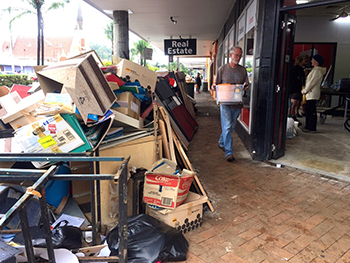The University Centre for Rural Health North Coast has experienced major operational growth in 2017, expecting more than 6,500 weeks of placements across the North Coast by more than 1,300 students from 21 universities.
UCRH’s focus has expanded from the original emphasis on training medical students, and it now supports students from 16 health disciplines. Particular growth has been achieved over 2017 in allied health with innovative models of placements developed at aged care facilities and schools, which are delivering positive outcomes for students and their placement organisations.
In order to accommodate the increasing numbers, construction works have commenced on a new 30-bed student accommodation facility at UCRH’s Lismore campus with completion due by mid-2018. Planning is also progressing on two additional student accommodation facilities in the Richmond and Clarence Valleys that will support a further 20 students training in the region.
Following a successful application for Commonwealth funding by The University of Sydney, the UCRH has been working closely with the NNSW Local Health District to establish a Regional Medical Training Hub at the Lismore Base Hospital. This Hub will increase the range and scale of specialist training that is delivered to doctors from Lismore and other Richmond Network hospitals, ensuring more doctors remain and build their careers in the region.
Following the devastating flood earlier in the year, UCRH researchers have embarked on a major study exploring how the community was affected by the disaster, including the impacts of the flood on mental health and wellbeing.
Supported by a number of community organisations, and state and local government, this study aims to help communities improve their preparedness, response and recovery to future disasters.
Other major research projects conducted within the UCRH this year have included:
- Leadership of the Centre of Research Excellence (CRE) in Integrated Quality Improvement, a national project aimed at improving Aboriginal and Torres Strait Islander primary healthcare;
- Participation in the CRE for Air Quality and Health Research, a collaboration conducting research on the impact of air pollution on health;
- A major study on potentially preventable hospital admissions for chronic conditions, aimed at improving measures of health system performance and reducing preventable hospital admissions; and
- Training health professionals to use e-mental health technologies and group therapy to improve Aboriginal and Torres Strait Islander mental health and suicide prevention.
- As well as running a busy education program for university students, the UCRH delivered 68 short-courses and symposia through 2017 to clinicians from the local community.
The CPD program included new courses in renal simulation aimed at improving the management of deteriorating patients on dialysis, and upskilling critical care doctors and nurses to better-manage medical emergencies.





